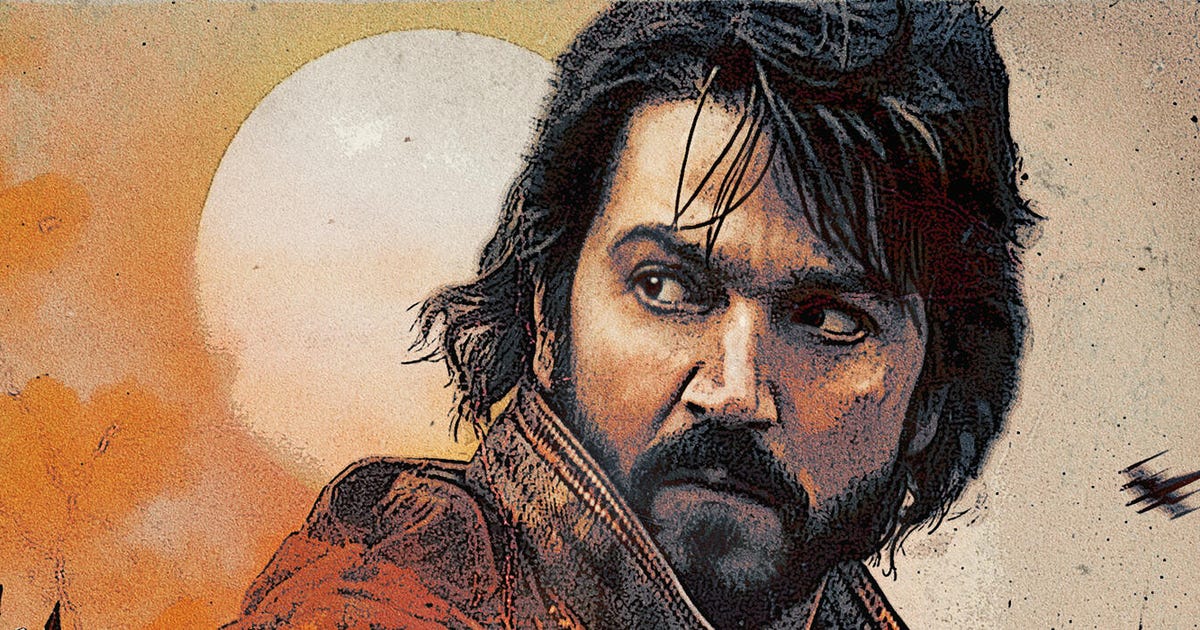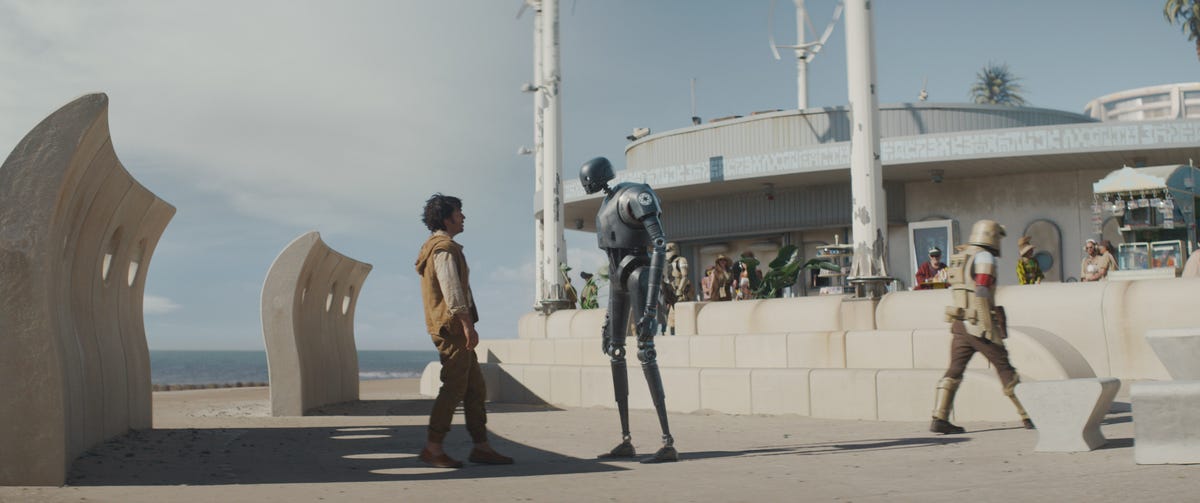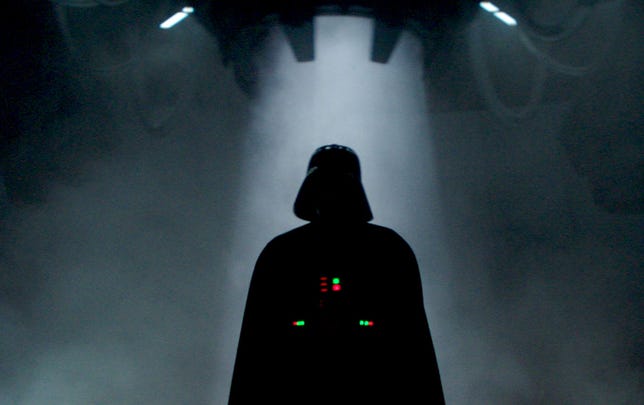
There’s one scene in episode 7 of Andor that sent me reeling.
It starts out weird. Cassian Andor, our titular antihero, having pulled off an impossible heist on the Galactic Empire, was doing what any reasonable criminal would do in the aftermath: partying it up in what can only be described as “Space Ibiza.” Getting boozed up by night, lounging off the hangover at the beach by day. A strange vibe for a universe usually dialed in on space wizards duking it out with laser swords.
While lounging, Cassian – a passerby in a completely new, separate crime he has no involvement in – gets pulled up by a Stormtrooper and is interrogated on the spot, accused of taking part in a crime he merely witnessed.
Anyone watching that scene who’s been interviewed by a rogue cop almost certainly had a knot in their stomach. Cassian, polite and forthcoming, frantically tries to avoid trouble as he is slowly ensnared by a calculated series of leading questions, resulting in him being imprisoned for a crime he didn’t commit. It’s a scene both brutal and baffling in its truthfulness. What initially feels like parody slowly unravels into something horrifying. The outcome feels depressingly inevitable: This is what happens when you allow fascism to flourish without recourse.

Cassian’s first encounter with an Imperial KX droid is anything but pleasant.
Lucasfilm
It’s funny, but Andor – a spinoff show focused on a character from a spinoff movie – is literally the first Star Wars “thing” that’s shown us that the Galactic Empire is a truly fascist regime that is, at its root, very bad. In a universe where the villains are supposed to be space Nazis, that’s sort of weird.
But it’s also why Andor continues to be a surprisingly excellent TV show. If you aren’t already watching it, you absolutely should be. It rules.
Andor rules because it’s a show obsessed with the smaller things in its universe. Star Wars has traditionally been about humongous events, gigantic space battles with galaxy-altering consequences. But at no point in any Star Wars movie have I gotten a real sense of what Luke Skywalker and Co. were actually fighting for; or what the rebels were rebelling against.
Darth Vader was bad because he dressed in black and choked dudes. That’s it. The Emperor, on the other hand, had a pale, pasty visage and a creepy laugh. Sure, these folks blew up planets and slaughtered younglings, but that’s pantomime villain stuff. In Andor the villain is the slow, unassuming creep of fascism, and that makes the show one of the most compelling things Disney has produced since acquiring the Star Wars license in 2012.

Nice to get a breather from this dude.
Disney Plus
It’s a show obsessed with the smaller things, the minutiae of the grind. We get to see apartment buildings, broken robots, disappointed mothers eating dinner with their adult children. We watch the impacts of bureaucracy in action, shitty little work meetings, office bitch sessions. We watch families bickering over breakfast, agonizing over guest lists and just generally partaking in the banalities of everyday existence. Strangely, it’s fascinating.
I’ve often criticized Star Wars for obsessively plugging the gaps of its own timeline and making its once grand universe feel small. Andor’s universe-building is different. It dials in on minuscule details in a way that makes the world of Star Wars feel authentically lived in. By weaving the stories of these less important characters into the grand narrative, we get to feel the enormous scale of broader conflicts. This isn’t a Star Wars story, it’s just a bit-part story that takes place somewhere in that universe. That’s awesome.
But beyond those topline concepts, Andor is simply a show that is good in almost every aspect of its production. It looks great, it’s well written. Not a single line of dialogue feels overwrought or clumsy. It’s packed with a number of top-notch performances as well.
Denise Gough – who plays Dedra Meero, a member of the Imperial Security Bureau – brilliantly captures the corporate anxiety of high-stakes meetings where a single wrong word could have you losing your job. And, as this tweet states, there is not a crime I wouldn’t commit if Stellan Skarsgård gruffly asked me if I wanted to “fight these bastards for real.”
Unclear what the limit is on crimes Stellan Skarsgård could convince me to do after hitting me with a “Don’t you want to fight these bastards for real” pic.twitter.com/7usRGe5SWv
— Patrick Monahan (@pattymo) September 30, 2022
Andor takes Star Wars to a place it’s never been. It feels more like a John le Carré novel with blasters than a space opera. And as someone who literally once ended a Star Wars rant/article with the words, “that’s enough Star Wars for me thanks,” it’s a welcome change.
If you, like me, found yourself exhausted with the exploits of Luke Skywalker and Co., I am urging you to reconsider. Andor, regardless of the Star Wars baggage, is one of the best shows of 2022. I’m as surprised as anyone.
